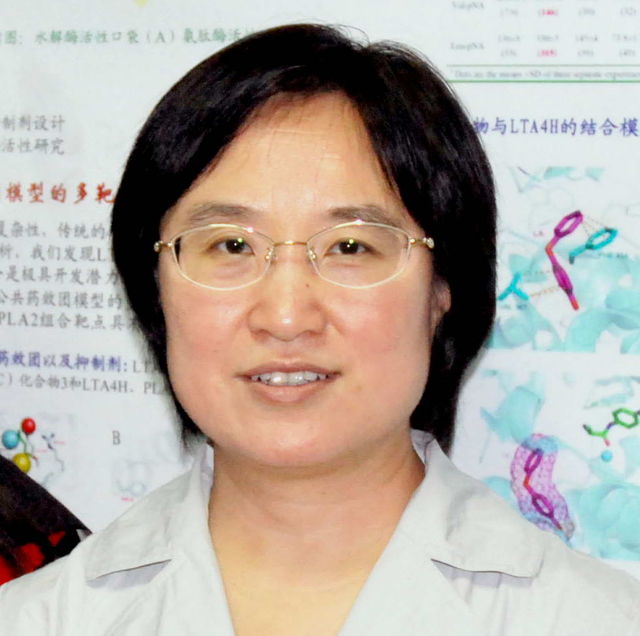From Structure Based to Systems Based Drug Design
Professor Luhua Lai
College of Chemistry and Molecular Engineering, Peking University, Beijing 100871, China
Abstract
 Structural based drug design has been widely used in drug discovery for leading compounds identification and optimization. Many successful applications have been reported. Various docking methods and de novo structural based drug design programs have been developed, which were all developed based on the single target binding assumption. However, drugs encounter complicated situations and a huge number of biological molecules in the human body and may cause unexpected deleterious or beneficial effects. In order to understand mechanism of drug action, disease related molecular networks need to be studied. My group has been working on the human inflammation related arachidonic acid (AA) metabolic network in order to understand its regulation mechanism and to discover better intervention strategy. We have developed a multiple target optimum intervention method (MTOI) that can be used to identify key targets for drug design and to predict optimum solutions to modulate disease network with minimum side effects. MTOI has been successfully used in simulating the inflammation related arachidonic acid metabolic network and in predicting novel combinatorial intervention strategies. As systems-based drug intervention often requires simultaneous control of multiple targets, we also explored possible ways for multi-target based drug design. Several types of multiple target inhibitors were discovered in the AA network and their influences on the AA metabolic network were studied. Methods and strategies developed in the AA metabolic network study can be generally applicable in studying other disease related networks.
Structural based drug design has been widely used in drug discovery for leading compounds identification and optimization. Many successful applications have been reported. Various docking methods and de novo structural based drug design programs have been developed, which were all developed based on the single target binding assumption. However, drugs encounter complicated situations and a huge number of biological molecules in the human body and may cause unexpected deleterious or beneficial effects. In order to understand mechanism of drug action, disease related molecular networks need to be studied. My group has been working on the human inflammation related arachidonic acid (AA) metabolic network in order to understand its regulation mechanism and to discover better intervention strategy. We have developed a multiple target optimum intervention method (MTOI) that can be used to identify key targets for drug design and to predict optimum solutions to modulate disease network with minimum side effects. MTOI has been successfully used in simulating the inflammation related arachidonic acid metabolic network and in predicting novel combinatorial intervention strategies. As systems-based drug intervention often requires simultaneous control of multiple targets, we also explored possible ways for multi-target based drug design. Several types of multiple target inhibitors were discovered in the AA network and their influences on the AA metabolic network were studied. Methods and strategies developed in the AA metabolic network study can be generally applicable in studying other disease related networks.
Biography
Luhua Lai got her BS and PhD in the Department of Chemistry, Peking University in 1984 and 1989. She then joined the faculty in the same department as lecturer, and became a full professor in 1992. During 1999-2000, she was a Berkeley Scholar in the University of California at Berkeley. Currently she is Vice Dean and Cheung Kong Professor in the College of Chemistry and Molecular Engineering, Peking University. Luhua Lai serves as associated editor for PLoS Computational Biology, editorial board member for BMC Bioinformatics and other related journals. Luhua Lai’s group uses combined computational and experimental approaches to study biological problems. Areas of interest include: novel protein structure and interaction pair design, disease related biological network analysis and intervention strategy, structural based ligand design methods and applications. Some of the computational programs developed in the group, like the de novo drug design program LigBuilder are widely used.
Special Note: An information session on “Research/Career Opportunity at College of Chemistry of Peking University" will be followed right after the seminar.
If you want to have some time with Prof. Lai, please contact Dr. Zhibin Guan at zguan@uci.edu.
Speaker:
Institution:
Location:

